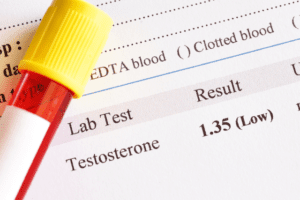Are You Living with Low Testosterone?

What Constitutes Low Testosterone?
Generally, normal testosterone levels fall between 300 and 1000 ng/dL. A level below 300, then, is considered abnormally low. Well before receiving the results of lab work though, men often perceive the changes brought on by their changing hormones. This is not unlike women who experience the symptoms of perimenopause. For men, the transition of changing hormones is described as andropause. It is a relatively normal, albeit frustrating, change of life. During this time, men may notice changes in sexual function, physical performance, and even their mood.
Symptoms of low testosterone include varying degrees of:
- Cognitive issues such as poor memory recall
- Anxiety and depression
- Weight gain, especially abdominal fat
- Erectile dysfunction
- Low libido
- Lack of energy
- Loss of muscle mass
- Hair loss
Testosterone levels may be influenced by age as well as other factors. Examples include the use of certain antidepressants, weight, opioid use, and metabolic conditions. Because hormones act as chemical messengers in the body, lowering levels of chemicals like testosterone may require clinical care. If you are noticing changes in your vitality and suspect your hormones may be involved, contact our Chattanooga office at 423-778-4MEN (4636). Dr. Shridharani is a men’s health specialist who works one-on-one with each patient to thoroughly assess and correct hormone imbalance


